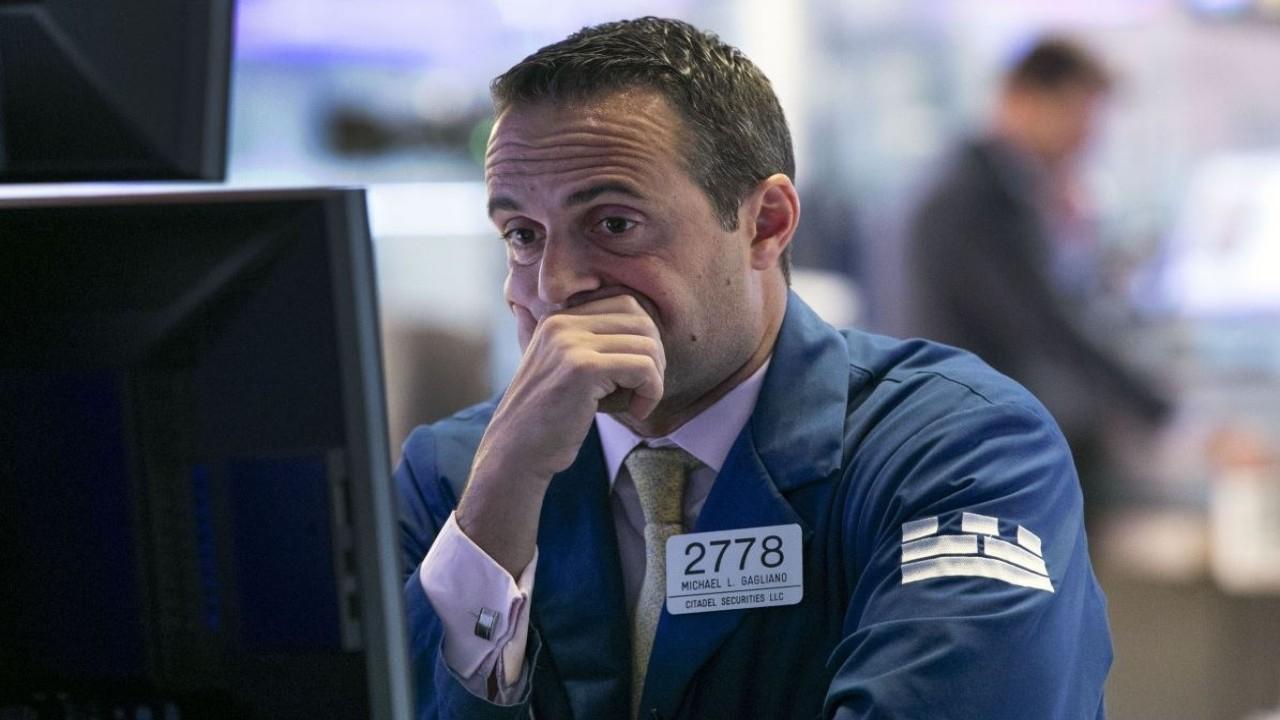Coronavirus spread threatens stock market's immunity
'Risks of a correction are high' as coronavirus spreads
U.S. equity markets have mostly shrugged off Corporate America’s warnings about the impact of the coronavirus, but that might be about to change.
The S&P 500 has climbed 1.3 percent on its way to seven record highs since Jan. 20, the day the coronavirus was first reported to have spread outside of China. The gains come despite scores of companies, such as Apple and Starbucks, having to close stores or drastically reduce operations in the country, which has led to lost sales and supply chain issues.
“The impact of the coronavirus on earnings may well be underestimated in current stock prices, suggesting that risks of a correction are high,” wrote Peter Oppenheimer, chief global strategist and head of macro research in Europe at Goldman Sachs.
'BLACK SWAN' CORONAVIRUS TO SLAM ECONOMY 10 TIMES HARDER THAN HURRICANE
The coronavirus, which originated in Wuhan, China, has sickened 76,767 people globally while killing 2,247, according to the World Health Organization. About 60 million people in China, which accounts for 99 percent of cases, have been locked down, isolating the world’s second-largest economy.
Wall Street economists have cut their growth estimates for China – and the world – as a result of the outbreak.
Economists at Morgan Stanley say production has returned to 30 percent to 50 percent of normal levels, and that they don't expect normalization to be reached until mid-to-late March.
Under this gradual recovery, which could see factories operate with longer hours and elevated capacity to meet the backlog of orders, the Morgan Stanley team sees China’s first-quarter growth slowing to 4.2 percent year-over-year, down from 6 percent in the fourth quarter of 2019. As for the global economy, they forecast growth slowing to 2.5 percent from 3 percent.
Oppenheimer noted early comparisons between the coronavirus and the 2003 SARS outbreak aren’t completely relevant because the Chinese economy is six times larger than it was then.
“As our economists have pointed out, Chinese tourism alone now accounts for 0.4% of Global GDP, and the number of ‘missing workdays’ in China will be roughly equivalent to the entire US workforce taking an unplanned break for two months,” Oppenheimer said.
The outbreak has ravaged supply chains and also hit demand for a number of products during at least the first three months of the year.
“The coronavirus (COVID-19) outbreak may have a lingering effect on technology companies, given Chinese-centric supply chains, meaningful Chinese revenue exposure, uncertainty regarding when the virus will peak, Chinese suppliers that are still not operating at full capacity, and the inability to quickly change suppliers,” wrote Alen Lin and Carla Norfleet Taylor, Chicago-based senior directors at Fitch Ratings.
Apple, the largest U.S. company by market capitalization, warned Tuesday it would not meet its $63 billion to $67 billion revenue guidance for the January to March period due to a “slower return to normal conditions” than the company had anticipated.
Foxconn, which produces about half of China’s smartphone exports, including the iPhone, is operating on limited capacity and does not know when production will return to normal.
Meanwhile, Apple’s retail stores remained closed across much of the country though they have resumed operations in Beijing and Shanghai. About 17 percent of Apple’s sales come from China.
| Ticker | Security | Last | Change | Change % |
|---|---|---|---|---|
| AAPL | APPLE INC. | 278.12 | +2.21 | +0.80% |
| GOOS | CANADA GOOSE HOLDINGS INC | 11.25 | +0.60 | +5.68% |
| EL | THE ESTÉE LAUDER COMPANIES INC. | 99.47 | +2.81 | +2.91% |
| RL | RALPH LAUREN CORP. | 342.62 | +3.69 | +1.09% |
While supply-chain issues are at top of mind for some companies, others are worried about the demand destruction caused by the outbreak, including Canada Goose, Estee Lauder and Ralph Lauren.
Hit the hardest are the "luxury stores who are gonna lose that Chinese consumer, that Chinese tourist who has been driving sales on 5th Avenue,” Storch Advisors CEO Gerald Storch told FOX Business’ Stuart Varney.
Chinese consumers, many of whom have been sidelined by the virus through either the temporary closing of stores or the grounding of U.S. flights into and out of the country, accounted for 33 percent of spending in the global luxury market in 2018, according to the management consultancy Bain & Co.
The good news is that any hit to GDP is expected to be made up in the second half of 2020 and the first half of 2021, according to the Morgan Stanley economists. Under their gradual production-resumption scenario, they see the global economy growing at 3.5 percent in the fourth quarter of this year and 3.7 percent in the first half of 2021.
CLICK HERE TO READ MORE ON FOX BUSINESS
Oppenheimer concludes the resilience of the global economy is likely to support equity markets and that a “sustained bear market does not look likely.”





















